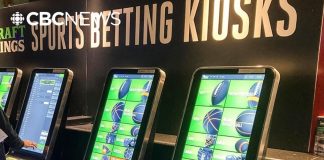Last week, the gaming industry came together to support the eighth edition of Safer Gambling Week.
Across social media, operators and other industry stakeholders shared responsible gambling messaging on their channels and platforms.
Amongst the names to show their support for the initiative were the Premier League sides Southampton, Tottenham Hotspur and Aston Villa, with the latter posting that it was “proud to support Safer Gambling Week 2024” alongside its front-of-shirt partner, Betano.
Aston Villa Football Club is proud to support Safer Gambling Week 2024 in collaboration with @Betano_UK
#SGWeek | @SGWeek pic.twitter.com/KJ75zgOyJC— Aston Villa (@AVFCOfficial) November 18, 2024
Tottenham showed their support by warming up before their game against Manchester City in t-shirts bearing the Safer Gambling Week logo. Spurs manager Ange Postecoglou also wore a coat with the logo stitched under the club’s badge.
Sonny 🤍 pic.twitter.com/5PNZU5v5pY
— Tottenham Hotspur (@SpursOfficial) November 23, 2024
Betting and Gaming Council
Each year, Safer Gambling Week is organised by the Betting and Gaming Council (BGC) alongside the Bingo Association and BACTA, as well as with backing from the UK Gambling Commission.
To mark the start of this year’s campaign, BGC CEO Grainne Hurst visited a Coral retail site to “highlight the tools available to help people stay in control”.
To mark the start of #SGWeek24, BGC CEO Grainne Hurst visited a Coral to highlight the tools that are available all year round to help people stay in control – things like deposit limits, time-outs and self-exclusion.
For more advice, visit https://t.co/OCDKRKsmTw pic.twitter.com/aswcUkdfyY
— Betting and Gaming Council (@BetGameCouncil) November 18, 2024
In a video posted by the standards body, she said: “This is already a well-established and cross-industry event.
“We know that in the UK, 22.5 million people like to have a flutter every month. The vast majority do so safely and responsibly. But Safer Gambling Week is a great moment in time where we can collaborate to raise awareness about the tools that are available to help our customers stay in control.”
“For BGC members, Safer Gambling Week isn’t just for one week a year, it is our focus and our priority all year round.”
The BGC also highlighted the cross-party support of Safer Gambling Week by parliamentarians, which included Minister for Gambling Baroness Twycross and Shadow Secretary of State Stuart Andrew.
It’s encouraging to see the widespread cross-party support from Parliamentarians for #SGWeek24. Their participation is vital in spreading key messages on responsible gambling and ensuring the public has access to the help and support they need. https://t.co/DmqwCf6mdA pic.twitter.com/lsUKbssPun
— Betting and Gaming Council (@BetGameCouncil) November 24, 2024
Baroness Twycross commented: “Safer Gambling Week is a good opportunity to recognise the important work being done to help protect those at risk of gambling harms.
“We welcome the industry using this week to highlight the tools and support available to prevent people from suffering potentially life-changing harm.”
Sharing real-life stories
Gambling harm prevention consultants EPIC Global Solutions spent Safer Gambling Week sharing the ‘stories behind the statistics’ of people impacted by problem gambling.
Its coverage was headlined by a female-focused webinar titled ‘Female gamblers: the hidden side of problem gambling’.
EPIC Consultant and recovering problem gambler, Megan Vanderson, took part in the webinar and shared her story of addiction and subsequent recovery.
Speaking about the barriers for female problem gamblers reaching out for support, Vanderson said: “The big one for me was fear and the stigma was a massive part of that. I was in recovery for drugs and alcohol way before I admitted I had a gambling problem. The only two people that knew I gambled were the operator and my bank account.
“As a young woman, drugs and alcohol are very much more socially accepted addictions and there’s so much more knowledge and information out there. When it came to gambling, I was so full of fear. It has so much more of a societal pressure.
“Where gambling is legal and so many people do it within their means and having fun, it felt like I was doing it all wrong so I should keep it a secret.”
The organisation also worked with William Hill, title sponsor of the Scottish Professional Football League (SPFL), to deliver gambling harm prevention training to clubs across all four SPFL divisions.
Coming into #SGWeek24/#ESGW24, we've already delivered gambling harm prevention education to more than a third of @spfl clubs so far this season, with the human touch that our lived experience of the situation provides ensuring the message lands.
More: https://t.co/VSoVbr57J8 pic.twitter.com/AC6AayBxPQ
— EPIC Global Solutions (@epicpgc) November 19, 2024
Ahead of the start of Safer Gambling Week, 16 teams received training, with a further five sessions taking place during the event week.
Gambling harm on the rise in 2024
Hot on the heels of Safer Gambling Week, GambleAware reported a 12% increase in people with gambling harm who received treatment compared to the previous year.
Between 1 April 2023 and 31 March 2024, a total of 11,000 users were treated through the National Gambling Support Network (NGSN), which is commissioned by the gambling support charity. Around 7,500 people received ‘structured’ treatment such as cognitive behaviour therapy (CBT), one-to-one support or residential care.
The NGSN report also outlined the number of people receiving early intervention for gambling harms for the first time. A total of 3,291 people used the early intervention service to only discuss their gambling habits, while 3,048 went on to receive further treatment.
Among those receiving treatment, 66% said they were in debt due to gambling, 24% lost relationships and 11% experienced a job loss because of their gambling.
In addition, 95% of those who completed treatment showed signs of improvement. Among them, problem gambling rates fell from 87% to 10% in the period between the first appointment and the completion of the treatment.




